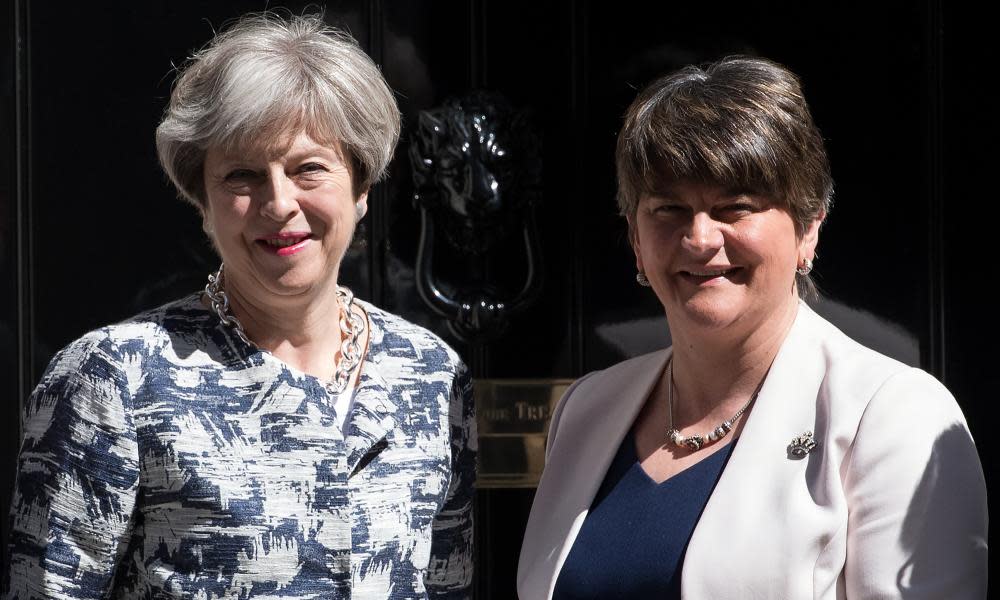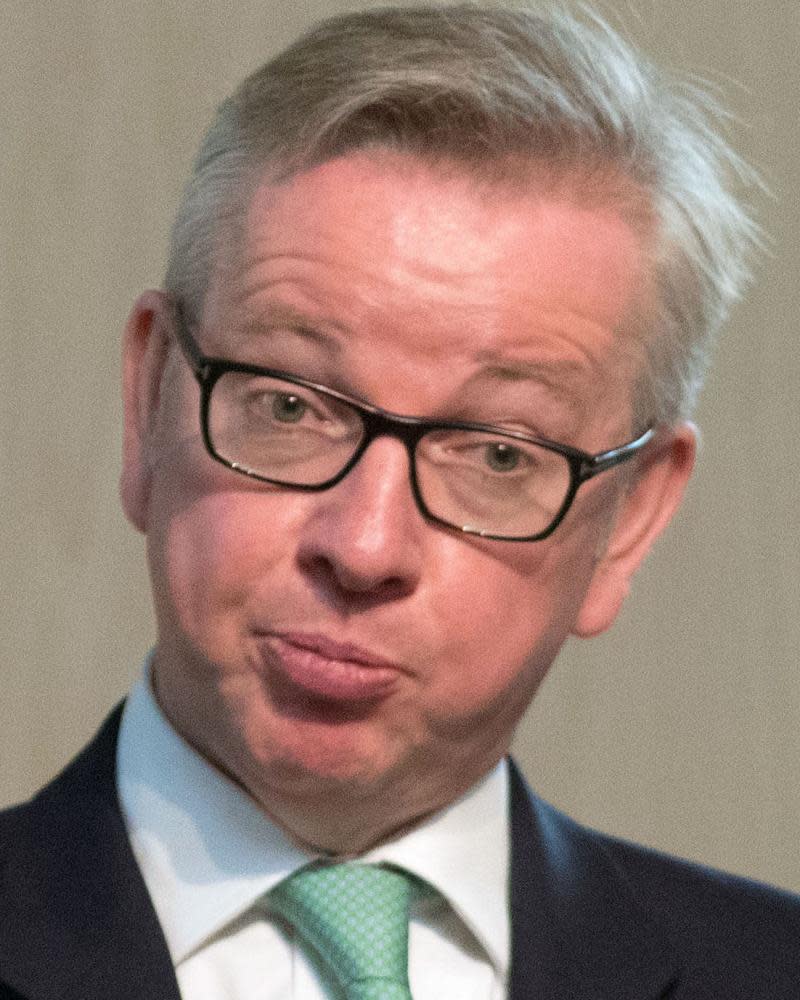Brexit Ireland deal could leave PM at odds with three demanding groups

Theresa May’s decision to concede the need to maintain “regulatory alignment” with the Republic of Ireland after Brexit leaves her with several powerful interest groups to placate.
How are they likely to respond, and what can the prime minister do to keep them on board?
Northern Ireland unionists
Even if the Democratic Unionist party (DUP) really wanted to take a risk and embrace a UK-EU deal that kept Northern Ireland in the same trade and regulations regime as the rest of Europe, it would face attack on its own flank.
Its rivals both in the hardline Traditional Unionist Voice and the Ulster Unionist party (UUP) would immediately accuse the DUP of a “sell-out”.
The most strident attack on the “regulatory alignment” proposal came from the UUP as opposed to the DUP.
Robin Swann, the Ulster Unionist leader, said that if the draft document was the real deal, then this would “present serious challenges to the economic, constitutional and political integrity of the United Kingdom”.

The DUP high command shares that analysis, which means it is not going to be persuaded to adopt this proposal in the draft leaked to Irish broadcaster RTE earlier on Monday.
DUP Brexit spokesman Sammy Wilson has even warned that the party would would take the “Samson option” and pull the parliamentary pillars down on top of itself by withdrawing support for the Conservatives.
Sinn Féin argues that the DUP would be reluctant to bring down May because it might result in a general election that leads to Jeremy Corbyn and Labour taking power.
With that in mind, DUP sources have said the party will instead be making common cause with Eurospectic Tories on the Conservative backbenches who are equally suspicious of any “special deal” for one part of the UK.
The DUP could then make double trouble for the prime minister – by not only threatening to withdraw its “confidence and supply” arrangement that keeps May in Downing Street but also making common cause with the more strident anti-European Tories. Henry McDonald, Ireland correspondent
Brexiters and the Tory right
Boris Johnson, Michael Gove and other leading Eurosceptics will not be happy if the UK ends up bound by existing EU regulations because Theresa May has agreed to align Northern Ireland with the Republic of Ireland to avoid a hard border.
This is the worst-case scenario for them and tantamount to the UK remaining in the single market, which they view as hardly leaving the EU at all.
More than a dozen Conservative MPs would probably reject a Brexit deal if these were the terms. If Gove and Johnson were to be unhappy, they could even bring down May’s government. Any suggestion that London has simply capitulated to Dublin and Brussels will also not play well with Tory Eurosceptic backbenchers.

But despite the claims of Nicola Sturgeon, Carwyn Jones and Sadiq Khan, it is not at all clear that this is what May has done with her offer.
The UK appears to be talking about signing up to “regulatory alignment” but only if there are “no other agreed solutions” and only in areas which support “north-south cooperation” and “the protection of the Good Friday agreement”.
Brexit-supporting MPs are more likely to accept this option, as they could probably tolerate sticking to EU rules in some very specific trading areas, such as pork and milk. So for now, the Tory awkward squad will wait to hear news of a final idea before passing judgment.
The most outraged reaction on the right came from Nigel Farage, the former Ukip leader, who said the “bitter betrayal of 17.4 million people today is a concession too far, for it will lead to endless problems in Scotland and it damages the integrity of the UK”. But he no longer leads a political party and has never had a seat in parliament. Rowena Mason, deputy political editor
Scotland and the SNP
Nicola Sturgeon suspects her government may be on the cusp of a breakthrough moment on Brexit, one where she sees Scotland’s case for special access to the EU single market and its customs union as undeniable.
Sturgeon said in a statement on Monday that an open borders deal with Ireland would put Scotland “at a double disadvantage” on jobs and investment, by boosting Northern Ireland’s trade and business links at the expense of other parts of the UK.
The Scottish first minister believes Theresa May’s stance on Brexit is about to collapse under the weight of its contradictions.
If Northern Ireland is allowed to remain closely aligned to EU single market rules to protect trade with Ireland, why, she asked in a tweet, can Scotland not do so too?
Sturgeon’s stance is underpinned by a wide consensus in Scotland that preserving the closest possible economic ties with the EU is the most desirable Brexit deal.
If one part of UK can retain regulatory alignment with EU and effectively stay in the single market (which is the right solution for Northern Ireland) there is surely no good practical reason why others can’t.
— Nicola Sturgeon (@NicolaSturgeon) December 4, 2017
However, Sturgeon has had a miserable experience galvanising Scottish public opinion on Brexit this year because she linked it explicitly to independence: the Scottish National party lost 21 Westminster seats in June.
Now she senses an opportunity to rebuild popular support on Brexit, and present the Conservatives and British government with a nasty dilemma. Sturgeon still has 35 MPs; the SNP remains the third largest party in the Commons.
Although an Irish deal would aim to protect the Good Friday peace agreement, which encodes pan-Ireland cooperation, rejecting Scotland’s claims to the same privileges or the right to single issue concessions will fuel Scottish complaints that the Tories have no mandate to enforce a harder line for Scotland.
And an Irish open border deal adds logic, Sturgeon will argue, to her case for Scottish independence after Brexit. If an UK-Irish frontier can be open, why not an Anglo-Scottish one?
Survation’s new poll puts support for independence at 47%, the highest for some time. Sturgeon may now have more ammunition to link the two. Severin Carrell, Scotland editor

 Yahoo News
Yahoo News 
